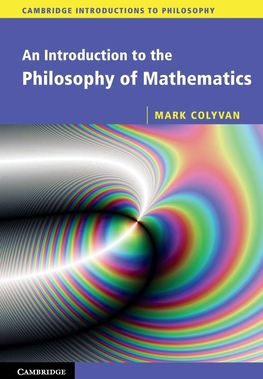Mathematics is a field of study that discovers and organizes methods, theories and theorems that are developed and proved for the needs of empirical sciences and mathematics itself. There are many areas of mathematics that include number theory, algebra, geometry, analysis, and set theory.
Ontology is the philosophical study of being. As one of the most fundamental concepts, being encompasses all of reality and every entity within it. To articulate the basic structure of being, ontology examines what all entities have in common and how they are divided into fundamental classes, known as categories. An influential distinction is between particular and universal entities. Particulars are unique, non-repeatable entities, like the person Socrates. Universals are general, repeatable entities, like the color green. Another contrast is between concrete objects existing in space and time, like a tree, and abstract objects existing outside space and time, like the number 7. Systems of categories aim to provide a comprehensive inventory of reality, employing categories such as substance, property, relation, state of affairs, and event.

Willard Van Orman Quine was an American philosopher and logician in the analytic tradition, recognized as "one of the most influential philosophers of the twentieth century". He served as the Edgar Pierce Chair of Philosophy at Harvard University from 1956 to 1978.
Philosophy of mathematics is the branch of philosophy that deals with the nature of mathematics and its relationship with other human activities.

Reductionism is any of several related philosophical ideas regarding the associations between phenomena which can be described in terms of other simpler or more fundamental phenomena. It is also described as an intellectual and philosophical position that interprets a complex system as the sum of its parts.
In information science, an ontology encompasses a representation, formal naming, and definitions of the categories, properties, and relations between the concepts, data, or entities that pertain to one, many, or all domains of discourse. More simply, an ontology is a way of showing the properties of a subject area and how they are related, by defining a set of terms and relational expressions that represent the entities in that subject area. The field which studies ontologies so conceived is sometimes referred to as applied ontology.

Hilary Whitehall Putnam was an American philosopher, mathematician, computer scientist, and figure in analytic philosophy in the second half of the 20th century. He contributed to the studies of philosophy of mind, philosophy of language, philosophy of mathematics, and philosophy of science. Outside philosophy, Putnam contributed to mathematics and computer science. Together with Martin Davis he developed the Davis–Putnam algorithm for the Boolean satisfiability problem and he helped demonstrate the unsolvability of Hilbert's tenth problem.
"The Unreasonable Effectiveness of Mathematics in the Natural Sciences" is a 1960 article written by the physicist Eugene Wigner, published in Communication in Pure and Applied Mathematics. In it, Wigner observes that a theoretical physics's mathematical structure often points the way to further advances in that theory and to empirical predictions. Mathematical theories often have predictive power in describing nature.
Religious philosophy is philosophical thinking that is influenced and directed as a consequence of teachings from a particular religion. It can be done objectively, but it may also be done as a persuasion tool by believers in that faith. Religious philosophy is concerned with the nature of religion, theories of salvation, and conceptions of god, gods, and/or the divine.

Ian MacDougall Hacking was a Canadian philosopher specializing in the philosophy of science. Throughout his career, he won numerous awards, such as the Killam Prize for the Humanities and the Balzan Prize, and was a member of many prestigious groups, including the Order of Canada, the Royal Society of Canada and the British Academy.
Michael David Resnik is a leading contemporary American philosopher of mathematics.
Structuralism is a theory in the philosophy of mathematics that holds that mathematical theories describe structures of mathematical objects. Mathematical objects are exhaustively defined by their place in such structures. Consequently, structuralism maintains that mathematical objects do not possess any intrinsic properties but are defined by their external relations in a system. For instance, structuralism holds that the number 1 is exhaustively defined by being the successor of 0 in the structure of the theory of natural numbers. By generalization of this example, any natural number is defined by its respective place in that theory. Other examples of mathematical objects might include lines and planes in geometry, or elements and operations in abstract algebra.
In metaphysics, Plato's beard is a paradoxical argument dubbed by Willard Van Orman Quine in his 1948 paper "On What There Is". The phrase came to be identified as the philosophy of understanding something based on what does not exist.

Critical realism is a philosophical approach to understanding science, and in particular social science, initially developed by Roy Bhaskar (1944–2014). It specifically opposes forms of empiricism and positivism by viewing science as concerned with identifying causal mechanisms. In the last decades of the twentieth century it also stood against various forms of postmodernism and poststructuralism by insisting on the reality of objective existence. In contrast to positivism's methodological foundation, and poststructuralism's epistemological foundation, critical realism insists that (social) science should be built from an explicit ontology. Critical realism is one of a range of types of philosophical realism, as well as forms of realism advocated within social science such as analytic realism and subtle realism.

An Introduction to the Philosophy of Mathematics is a 2012 textbook on the philosophy of mathematics by Mark Colyvan. It has a focus on issues in contemporary philosophy, such as the mathematical realism–anti-realism debate and the philosophical significance of mathematical practice, and largely skips over historical debates. It covers a range of topics in contemporary philosophy of mathematics including various forms of mathematical realism, the Quine–Putnam indispensability argument, mathematical fictionalism, mathematical explanation, the "unreasonable effectiveness of mathematics", paraconsistent mathematics, and the role of mathematical notation in the progress of mathematics. The book was praised as accessible and well-written and the reaction to its contemporary focus was largely positive, although some academic reviewers felt that it should have covered the historical debates over logicism, formalism and intuitionism in more detail. Other aspects of the book that received praise were its coverage of mathematical explanation, its appeal to mathematicians and other non-philosophers, and its discussion questions and further readings, whilst its epilogue and short length received a more mixed reception.

The Indispensability of Mathematics is a 2001 book by Mark Colyvan in which he examines the Quine–Putnam indispensability argument in the philosophy of mathematics. This thesis is based on the premise that mathematical entities are placed on the same ontological foundation as other theoretical entities indispensable to our best scientific theories.

The Quine–Putnam indispensability argument is an argument in the philosophy of mathematics for the existence of abstract mathematical objects such as numbers and sets, a position known as mathematical platonism. It was named after the philosophers Willard Quine and Hilary Putnam, and is one of the most important arguments in the philosophy of mathematics.

Philosophy of ecology is a concept under the philosophy of science, which is a subfield of philosophy. Its main concerns centre on the practice and application of ecology, its moral issues, and the intersectionality between the position of humans and other entities. This topic also overlaps with metaphysics, ontology, and epistemology, for example, as it attempts to answer metaphysical, epistemic and moral issues surrounding environmental ethics and public policy.
Russell Marcus is a philosopher specializing in philosophy of mathematics and the pedagogy of philosophy. He is Chair of Philosophy at Hamilton College and president of the American Association of Philosophy Teachers.
David Liggins is a philosopher at the University of Manchester with research interests in metaphysics and philosophy of mathematics.








